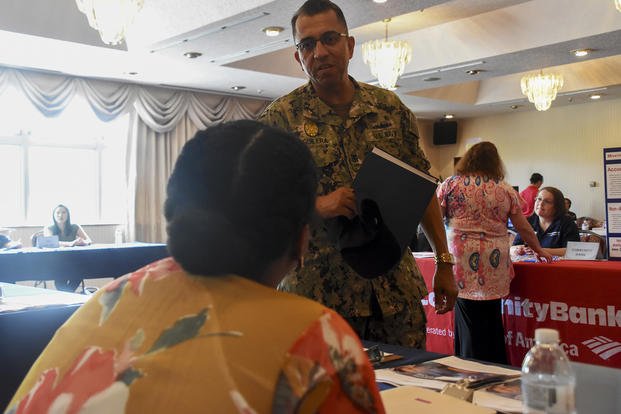"I would tell somebody leaving the military to keep the same frame of mind and organization that you had in the service." -- Christopher Poe, U.S. Army, E-5, separated.
Poe discusses his experiences during his military transition.
As far back as grade school, I had thought of joining the Army. I come from a military family and felt not only a desire for what was an honorable profession; I felt a sense of duty. I had six uncles go to Vietnam; five came home.
I joined the Army in 1990 at age 17 and separated from active service in 1998. I spent four years in the Light Infantry, 7th ID(L) in Fort Ord, California, and Fort Lewis, Washington. These are the most noteworthy and pride-filled memories of my eight-year career. Then I transferred, becoming a mechanized infantry NCO [noncommissioned officer] at Fort Carson, Colorado, and Fort Riley, Kansas. During my career, I was deployed three times -- Kuwait, Cuba and Bosnia.
After eight years in the infantry, my outlook of civilian life was that I would do well, no matter where I ended up -- working or schooling. The greatest gift my Army experience has given me is a sense of myself, and what I can accomplish. I believe that few people on Earth know exactly what they can do both physically and mentally without the same kind of opportunity.
At the brink of exhaustion, wet from the rain, with a 100-pound pack on your back, somehow you find the strength to keep going. That is the attitude I take in the civilian world. I'd assumed that my civilian career opportunities would be limited, but my military awards and experience as a squad leader gives me the distinction of someone that can get the job done.
I'm married and have three children: Jessica, Lauryn and Gregory. My wife, Kerry, played a major role in our time in the Army and deserves kudos for her efforts. My hometown is Newton, Massachusetts, and we returned here after my tour of duty.
Kerry made the transition to civilian life a lot easier than I did, although we occasionally find ourselves fondly remembering "the good times." I'm currently a member of the Army National Guard, but I miss the infantry; you don't find the same camaraderie anywhere else.
Currently, I'm a quality control manager for a major engineering firm in the telecommunications industry. I'll soon be commuting to Virginia for a two-year project as site manager for a major cable network construction contract. I found my job through the Department of Labor and Unemployment (Veterans Division).
I got help from a fantastic retired Army major, Clay Conard, who has more contacts than I can count. After my separation, I found my first job on my own, but Mr. Conard contacted me for my current position. I nervously went for the full-blown interview and happily discovered the human resources interviewer was an ex-artillery officer.
I would tell somebody leaving the military to keep the same frame of mind and organization that you had in the service. Hard charge, chin up, clean-cut and unstoppable -- and on the outside, you will flourish.
-- Compiled by Barbara Poisson
The Next Step: Find the Right Job
Whether you want to polish up your resume, find veteran job fairs in your area, or connect with employers looking to hire veterans, Military.com can help. Sign up for a free Military.com membership to have job postings, guides and advice, and more delivered directly to your inbox.











